Can You Drink Tap Water in Spain?
Can you drink tap water in Spain? This will be your essential guide if you want to reduce plastic waste and keep your budget tight while travelling to Spain.
Continue reading about the suitability of Spain’s tap water for drinking and relevant insights before quenching your thirst with tap water.

I am providing you with an authentic, on-the-ground perspective. Read my full Authenticity Guarantee disclaimer.
This guide in a nutshell:
- Most cities in Spain have safe and drinkable tap water;
- Still, bottled water is also commonly used and readily available;
- In restaurants, you are most likely given the option of bottled water or tap water;
- Tap water in Spain is called ‘Agua del Grifo‘;
- In 99.99% of cases, you can use tap water for brushing your teeth and cooking.
- If you experience any life-threatening situation, call 112 (or visit a page with all emergency numbers in Spain)
Can you drink tap water in Spain?
To put it simply, yes, you most certainly can. Spanish tap water is fit for human consumption. Around 99% of Spanish tap water is graded as suitable for drinking.
Additionally, Spain proudly claims one of the foremost public water filtration and wastewater management systems worldwide. Tap water in Spain is practically bacteria-free and poses virtually no risk of illness.
| City | Tap Water Quality | Notes |
| Madrid | Excellent | Safe for cooking, brushing teeth, drinking |
| Barcelona | Good | Safe for all uses, some complain about taste |
| Málaga | Very good | Safe for all uses |
| Ibiza | Good | Safe for all uses, some complain about taste |
| Canary Islands | Good | Safe for all uses, some complain about taste |
| Valencia | Good | Safe for all uses |
Tap water on islands like Ibiza or Mallorca tends to have the worst taste because it contains different minerals than you are used to.
Desalinated water has a weird taste because desalinated seawater lacks four essential minerals vital to human health: calcium, magnesium, fluoride, and iodine.
If you’re wondering why locals are guzzling down bottled mineral water, it’s a taste preference rather than a health concern. The tap water may seem saltier or give off a hint of chlorine. Regions with “hard” water might also serve a slightly bitter taste.
If you’re open to exploring the local way of life, drinking tap water in Spain can enrich your travel experience, giving you an ‘authentic’ taste of local habits and customs.
Also, note how your stomach usually reacts to changes in water sources. Does it need a little time to adjust? If your stomach is more sensitive, take things slow.
You could boil your water before sipping or grab a few bottles of mineral water for your initial day or so. Honestly, most travellers don’t need to take these extra precautions.
For those with specific health concerns or if you’re prone to certain genetic conditions, it’s wise to seek advice from your doctor. This would avoid potential issues tied to Spanish tap water’s slightly higher mineral content.
Can You Drink Tap Water in Spanish Restaurants?
As per legislation approved in Spain in April 2022, all bars and restaurants nationwide must now serve tap water to their customers at no charge.
This rule was intended to reduce the utilization of plastic bottles, which helps reduce plastic waste’s harmful environmental impact.
How to Order Water in Restaurants in Spain
Excited to put your Spanish language skills to the test? Here’s how you can request a glass or a jug of tap water in Spanish.
“Por favor, ¿podría darme una jarra de agua del grifo?” translates to asking – Can you please serve me a jug of tap water?
“Por favor, ¿podría darme un vaso de agua del grifo?” is how you politely request a glass of tap water.
Should you prefer bottled mineral water, here’s how you could ask it :
“Por favor, ¿podría darme una botella de agua mineral?” – This phrase asks – Can you please bring me a bottle of mineral water?
If you’re sure about the specification of either still or sparkling water, modify your question accordingly:
“…una botella de agua mineral sin (without) gas.”
Alternatively,
“…una botella de agua mineral con (with) gas.”
Should I Avoid Ice in Spain?
Contrary to common concerns, there’s typically no need to avoid ice in Spain, given that tap water is usually safe to drink.
The ice in bars and restaurants is predominantly sourced from commercially packaged bags. These bags are produced under stringent health and safety regulations, and the ice is usually made from filtered water.
Thus, rest assured that the ice used in drinks in Spain is safe for consumption.
If you’d rather enjoy your beverage without ice, ask the waiter for your cocktail or water “sin hielo“ (sans ice, pronounced ‘ye-lo’). That’s Spanish for ‘without ice’.
Can I Use Tap Water to Cook in Spain?
Using Spain’s tap water for cooking purposes such as boiling pasta, brewing coffee, or rinsing fruits and vegetables is also safe. If this thought troubles you, supermarkets offer vegetable cleaners readily available in their fresh produce sections. However, these are not a must-have.
Can I Brush My Teeth With Tap Water in Spain?
Rest assured, brushing your teeth with tap water across Spain is also safe. You don’t have to resort to bottled water for that.
Can You Drink Spain Tap Water in Hotels?
Given the excellent quality of tap water in Spain, it’s safe to fill your water bottle using the tap in your hotel bathroom in most cases.
Signage would indicate if the water supply is non-drinkable. In such cases, you will see a sign near the bathroom sink. In 17 years, though, I never saw one.
Generally, it’s always a good idea to ask at hotel reception about any problems you might not be informed about. If the signs are not translated into English, you should be on the lookout for phrases like,
“Agua no apta para beber”
“Agua no potable”.
Nonetheless, referencing the previous point about getting used to different types of water, it can be useful to slowly adapt to Spanish tap water. A gradual approach is recommended for those who may experience sensitivities or reactions to foreign food or water. For instance, you could boil your first batch of tap water using your hotel kettle.
Another method to manage digestive sensitivity issues while travelling is a probiotic supplement or active charcoal tablets. I like taking them on all trips because sometimes they are lifesaving. I am not a doctor, so please consult your doctor or pharmacist.
Can You Drink Tap Water at Airbnbs in Spain?
Unless your Airbnb host specifies otherwise, tap water in Spain’s Airbnb accommodations is safe to drink. However, if your accommodation is in a remote area, confirming this before consuming tap water is a safe bet. In some remote places, people still drink rainwater – but they’re used to it, unlike you and me.
Many private houses in Spain have water filters fitted to the faucets to enhance the water’s taste. Alternatively, some Spanish households opt for free-standing water dispensers holding large 5-gallon bottled water. If you notice one in your Airbnb, you can choose to drink from the dispenser or directly from the tap.
Before drinking water in other people’s places, verify that no cockroach infestation is present. Cockroaches in Spain are a significant problem because they can transmit disease.
Can You Drink From Water Fountains in Spain?
The Spanish government and local municipalities are ardently working towards curbing plastic pollution, which includes ensuring the availability of public drinking fountains across the country. Now, I’m talking about small fountains usually having a button, not big ones.
You can easily locate these fountains in the heart of major cities, parks, and popular tourist destinations. Non-potable fountains or fountains under maintenance are distinctly marked for public awareness.
So bring along your reusable water bottle. It’s a small step that allows you to contribute to environmental conservation and saves you money for sangria!
Read also:
Is it Safe to Drink Tap Water in Valencia?
Tap Water in Madrid
If there were a hierarchy of Spain’s tap water, Madrid would be at the top. The water in the Spanish capital is considered the safest and cleanest in the country. In addition, it is deemed “soft,” and therefore, it tastes good!
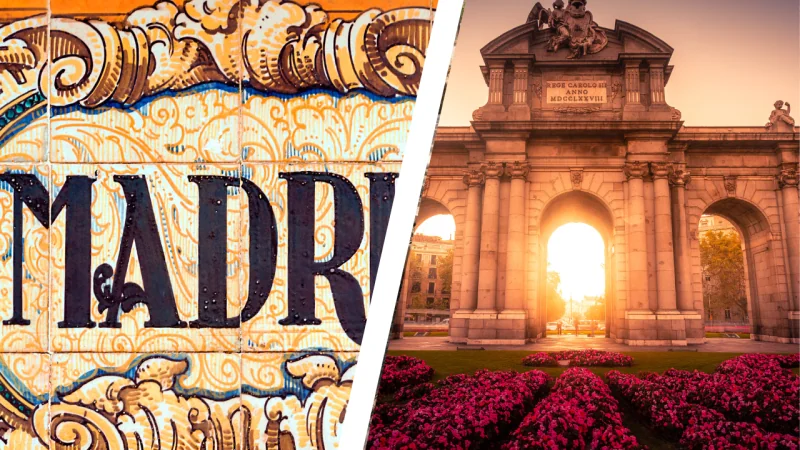
Therefore, you can rehydrate without concern from the taps in your hotel or Airbnb. This beautiful city in Spain has over 2,000 public water fountains where you can safely top up on the go. If you take any day trips from Madrid or stay in other cities in Castilla y Léon or Castilla La Mancha, tap water is fine to drink.
Remember to slip a reusable water bottle into your bag, and you can join 96% of the Madrid population who favour tap water.
Is it Safe to Drink Tap Water in Barcelona?
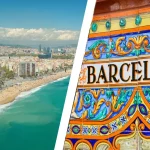
Drinking tap water in Barcelona is just as safe as in Madrid. However, many locals prefer to purchase bottled water or install water filters due to the distinctive taste of the tap water in the seaside city.
This taste difference results from Barcelona’s water’s high mineral content from a mineral-rich river. This composition leads to “hard water,” characterized by a high concentration of calcium and magnesium ions.
While completely safe to drink, it may not be to everyone’s taste preference.
Should you hail from parts of the UK, northern Europe, or Slovenia, where the tap water has an easy, fresher taste, you’ll likely notice a difference when sipping from the faucet in Spain.
Luckily, a simple trick can help tourists improve their taste. Store the tap water in a fridge for a few hours. You’ll be surprised to see how cool the water dulls the stronger flavour.
Another quick tip to disguise the taste is to add a slice or squeeze of fresh lemon or lime into the water.
This trick is beneficial in Barcelona and equally effective across Catalonia.
Tap Water in Málaga
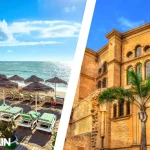
Tap water in Málaga and the broader area of Andalusia can usually be safely consumed since it undergoes extensive treatment processes in compliance with rigorous European Union regulations.
The district’s tap water is also somewhat renowned for its pleasant flavour, coming from the Sierra de Mijas and Montes de Malaga nature preserves contributing to the water source.
You may not immediately like the water’s taste – we all have unique preferences. Some tourists have reported that tap water in Spain, particularly Málaga, has a slightly unusual taste due to the different mineral content.
If the perceived change in taste troubles you, I suggest carrying a refillable water bottle, ideally one equipped with a filter. This strategy resolves any taste issues you might experience and is also an environmentally responsible choice.
While you can feel confident in the tap water’s safety in Málaga proper, tread carefully if your adventures take you to Andalusia’s quaint, rural villages. The water treatment standards can vary in these small communities compared to cities.
Is it Safe to Drink Tap Water in Gran Canaria and Tenerife?
On the island of Gran Canaria, desalinated water makes up a significant portion of the water consumed by locals and tourists alike, about 86% to be exact.
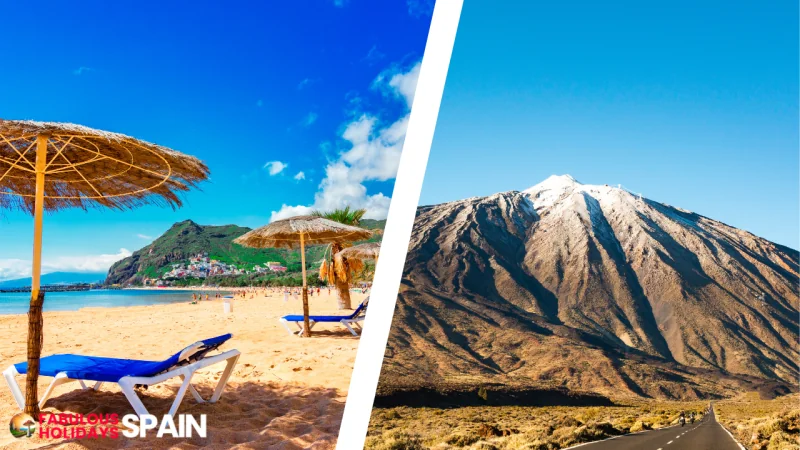
Despite Tenerife’s greater natural water resources, desalination is also a major water source, accounting for 47% of residential water use.
The distinct taste of the tap water in these areas compared to bottled water can be attributed to the treatment methods after desalination.
Under regulations, the fully distilled water must undergo chlorination in small doses to effectively prevent bacterial contamination. Additionally, the water undergoes a process called remineralization to restore its balance, as the desalination process removes a significant amount of salt from the water.
In general, tap water in these islands is safe to drink, but it’s often high in mineral content. This means that while it won’t make you sick, it will have a different taste than what you’re accustomed to back home. Also, these mineral deposits can sometimes upset sensitive stomachs.
To ensure a stomach-ache-free holiday, we suggest buying bottled water or investing in a water filter bottle, especially if you plan to stay for an extended period.
On another note, tap water is safe for other uses, such as brushing your teeth, washing fruits, cooking, and making that much-needed morning coffee!
Can you drink tap water in Mallorca?
Mallorca offers high-quality tap water, which is generally safe for drinking.
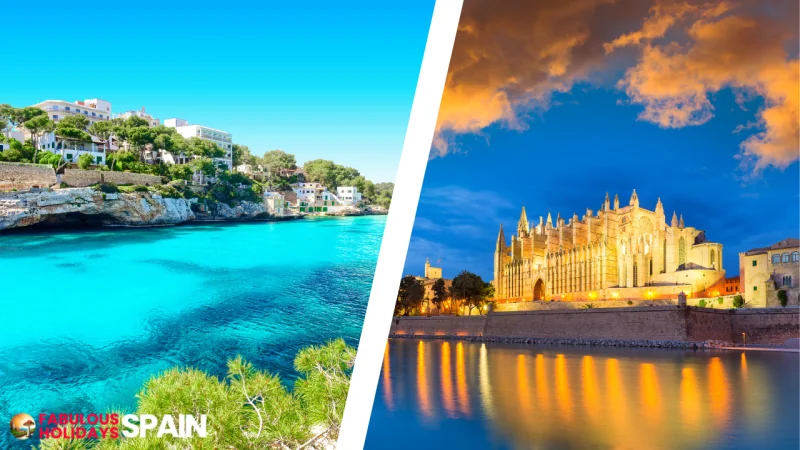
Being a smart traveller means going beyond the generalities and exploring specific local knowledge to enrich your experience.
Can you drink tap water in Lanzarote?
Lanzarote obtains its water through desalination, which might give the tap water a mildly salty flavour. Apart from that, it’s safe for consumption, provided it comes directly from the mains.
An issue arises with many locations storing water in aljibes (water storage tanks) for times when there’s a high demand leading to a cut in the water supply. The maintenance standards of these tanks can vary, so using a water filter might be a wise precaution.
Is it Safe to Drink Tap Water in Fuerteventura?
The main source of Fuerteventura’s water supply is the sea, which undergoes a desalination process in several plants scattered around the island. Without these desalination facilities, the island’s thriving tourism wouldn’t exist.
While safe to drink, the tap water in Fuerteventura contains a high chlorine concentration, resulting in an unpleasant taste. However, it is perfectly fine for washing and oral hygiene purposes. For drinking, you might want to consider purchasing affordable bottled water instead.
Use a Filter Water Filter Bottle to Make Water Taste Better
For many globetrotters, water filter bottles have become a vital item in their travel gear. These vessels are far from ordinary -they’re the epitome of practical innovation, designed to provide you with purified, drinkable water on demand.
Imagine this scenario: You’re meandering through Barcelona, marvelling at Gaudi’s magnificent creations. The sun is overhead, and you stumble upon a tap. Instead of worrying about the quality of the water, you fill your water filter bottle. It does its filtration process in no time, purging unwanted particles and serving pure, unadulterated water. Fascinating.
Various companies produce these invaluable travel buddies, but three brands often cut the top of the roster: LifeStraw Go, Brita Premium Filtering, and the Grayl Ultralight. LifeStraw Go uses a comprehensive 2-stage filtration system that wipes out bacteria and protozoa.
In comparison, the Brita Premium Filtering water bottle alleviates the taste and smell of chlorine while sifting out particulates. Lastly, the Grayl Ultralight takes the lead due to its ability to combat bacteria, protozoa, and viruses—a remarkable travel companion.
Does owning a water filter bottle guarantee you’ll consume only safe water? Indeed! Even though tap water in Spain is generally deemed safe, having a water filter bottle grants you an additional layer of assurance and better taste.
As the saying goes, when health is concerned, it’s always better to err on the side of caution, wouldn’t you agree?
In Conclusion – Can You Drink Tap Water in Spain?
So, what’s the final word? Can you drink straight from the tap in Spain? Generally speaking, yes, you certainly can.
Spain’s tap water is safe to drink, adhering to stringent governmental quality standards. Thus, you can confidently top your water bottle from the hotel sink or Airbnb kitchen tap.
But taste is also a critical factor. Absolutely! While the tap water in Spain is undeniably safe to drink, its taste might sometimes be a bit off-putting, particularly in coastal regions.
You can also gulp down the water from the fountains scattered around parks and cities. Just ensure the fountain has a sign indicating ‘ Agua Potable’, meaning the water is safe to drink.
Ultimately, it’s about staying hydrated while exploring Spain’s beautiful landscapes, cities, and culture. So, top up your bottles from the tap and venture out on your adventurous journey.
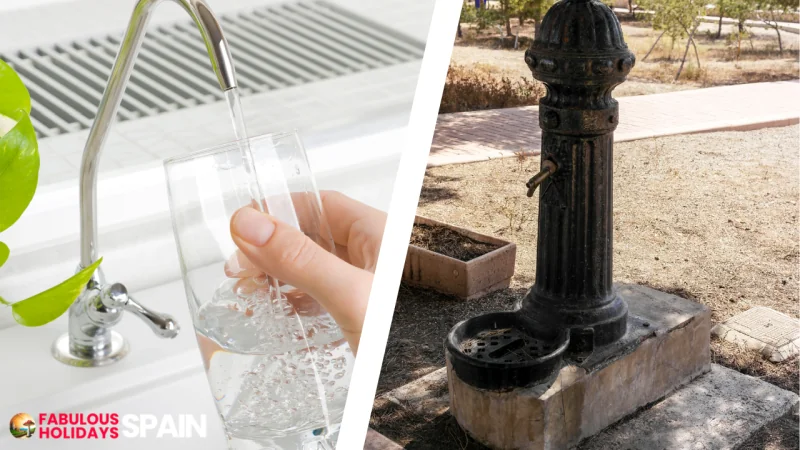
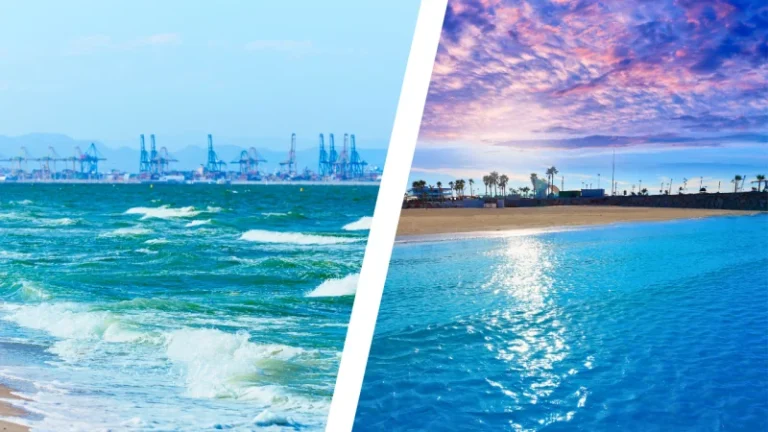
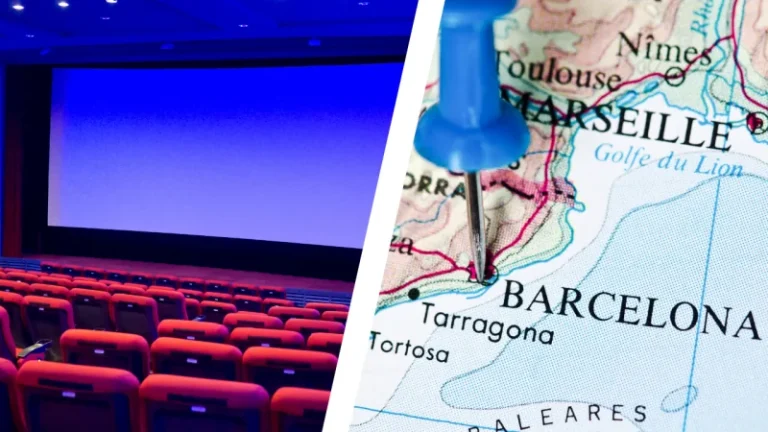
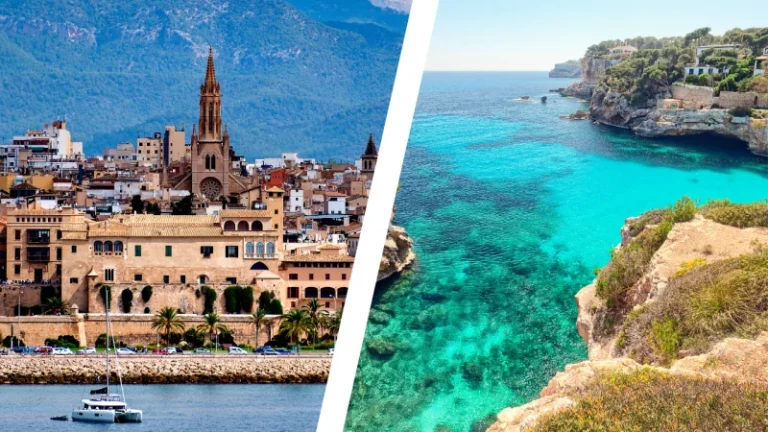

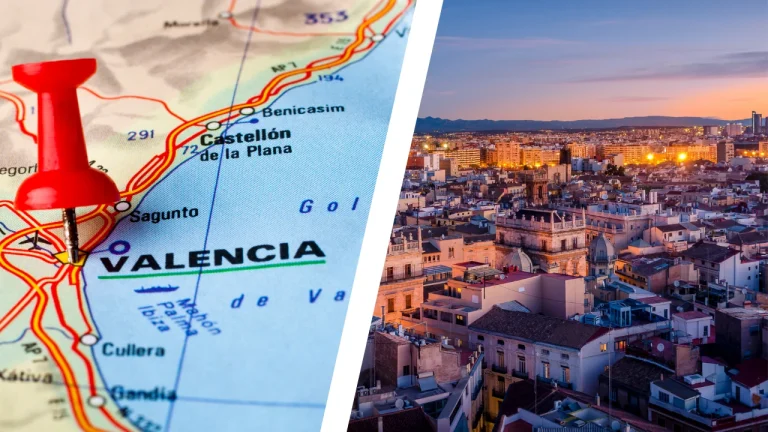
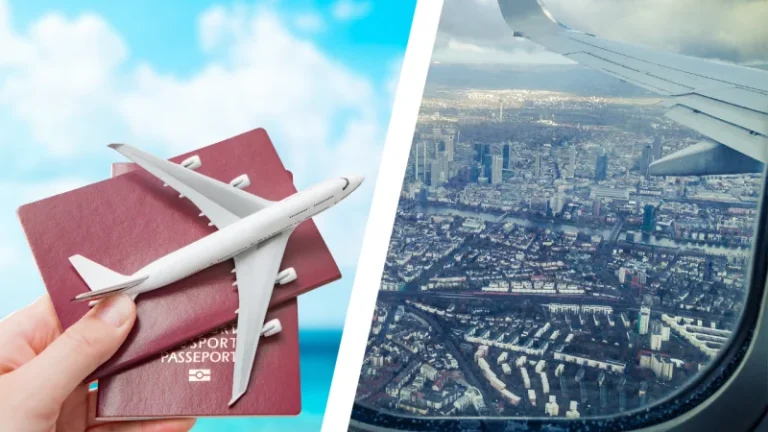
One Comment